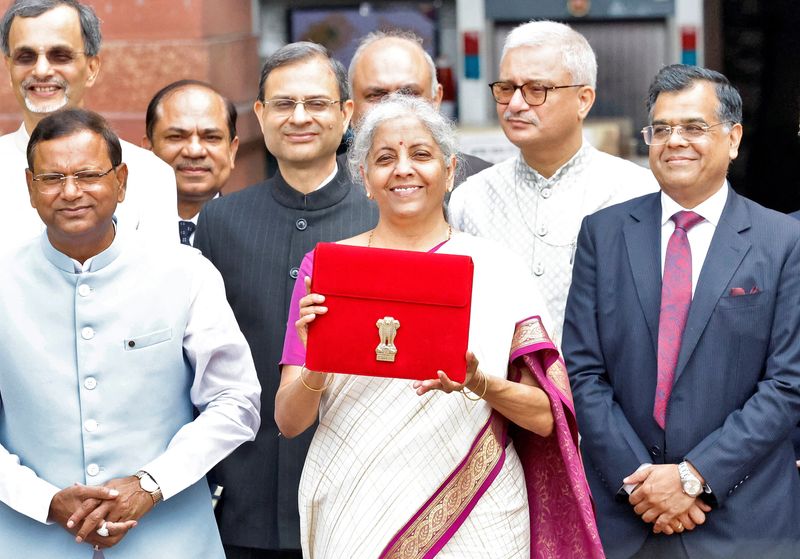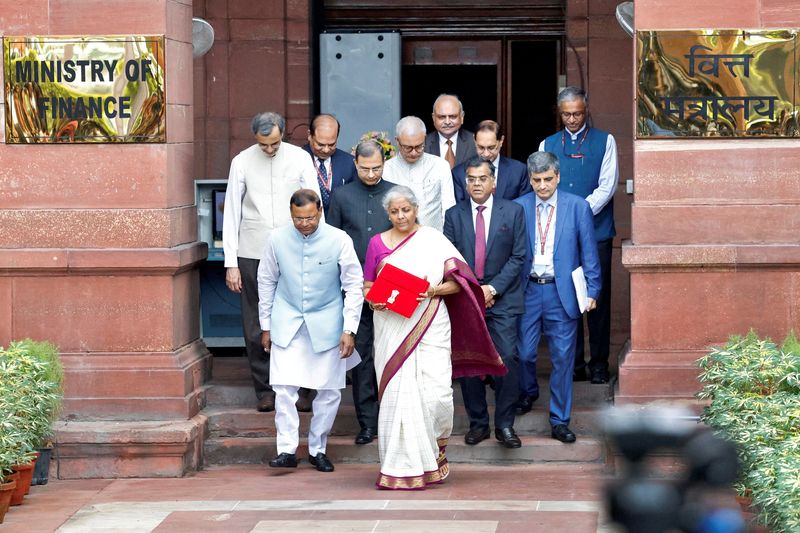By Sarita Chaganti Singh and Nikunj Ohri
NEW DELHI (Reuters) - India's Finance Minister has backed her economic adviser's suggestion to allow more Chinese investment in the country, after flows were disrupted by New Delhi's increasingly strained ties with Beijing since 2020.
On Monday Chief Economic Adviser V. Anantha Nageswaran said New Delhi should focus on Foreign Direct Investments from China to boost India's exports to the U.S., and other western countries and help keep India's growing trade deficit with Beijing in check.
Finance Minister Nirmala Sitharaman, said at a press conference on Tuesday that the adviser's office works at an "arm's distance" but "that doesn't mean I am disowning the suggestion," becoming the first minister to back such a move.
India tightened its scrutiny of investments from Chinese companies and halted major projects since 2020, as relations between the two nuclear giants soured after clashes on their largely undemarcated Himalayan frontier left 20 Indian and four Chinese soldiers dead.
Western countries are looking for alternative import avenues to reduce their reliance on China in global manufacturing and supply chains, and India should aim to benefit from it, the adviser's report had said.
A senior Indian official told Reuters in January that investment curbs could be lifted if the border between the nuclear-armed Asian giants remains peaceful.
However, diplomatic and military talks to resolve the border issues have remained unsuccessful.

Along with investments scrutiny, India has also virtually blocked visas for all Chinese nationals since 2020, but it is considering easing them for Chinese technicians, as it had hindered investments worth billions of dollars.
India's net FDI inflow dropped by 62.17% to $10.58 billion in 2023-24 (FY24), a 17-year-low, from $27.98 billion the previous year, central bank data showed.
